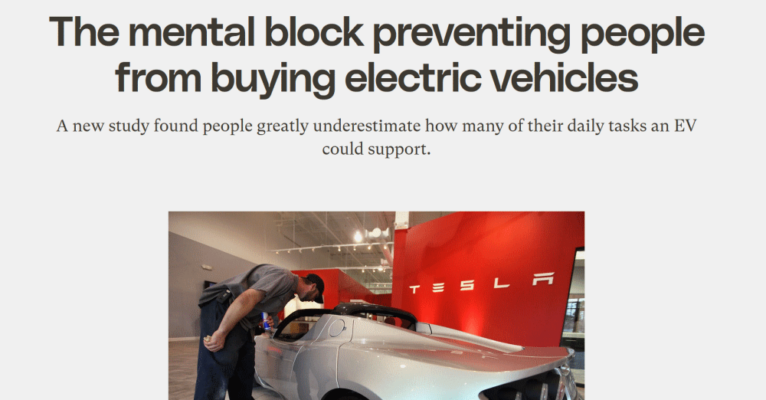Then There Were Two

I hadn’t made the time to write this post, mostly because I wasn’t quite sure how to explain how weird it was to go from EV-curious to a two EV household in four months… Some of that weirdness is perfectly encapsulated in the research article linked below, which has helped to frame the things I wanted to say out loud. So go have a read, after you’re done here, obviously :).
Swapping my ICE for the Mach-E was made a lot easier because I knew that in a pinch I could always use my wife’s ICE SUV. Then after getting it, and after the dust settled, it became obvious that so many of the things that had kept me from getting an EV before just didn’t matter, with the biggest hurdle being the “what happens on a road trip” problem. Now, just be clear, taking a road trip an EV is a lot of work compared to an ICE car.
I don’t want that to get lost here, it kind of sucks. There is a level of planning, and waiting, and planning, and waiting, and complexity that just doesn’t exist anymore for long distance ICE travel. Remember when we used to print out MapQuest directions? It’s kind of like that :). But it’s also important to point out that the reason for this is mostly EV infrastructure problems that don’t exist, anymore, for ICE based driving because we’ve been doing ICE for so long. This will get better. Depending on your long distance driving paradigm, it might get to parity (how I travel with my family), or sort of OK (how I travel when it’s just me).
The reason I say it doesn’t matter though, is that when examining something it is critical to think about the experience on aggregate. I only do a big road trip a couple/few times a year, so that inconvenience, while potentially full of suck, is massively outweighed by the sum of small conveniences that I now experience compared to ICE. To highlight a couple of these; even though at an intellectual level I knew that not going to gas stations would be awesome in the rain/snow/sleet/etc. I didn’t really internalize how awesome that would be, how awesome it be to just not go to gas stations period, or how awesome it is to always have the car at 80% charge, or how nice it is to get into a pre-conditioned car when it’s 20F outside… When I consider how much time I spent filling up my S4, or waiting in line at CostCo, it puts those rare 20-40 minute DCFC sessions in context. Yeah that sucks, but it doesn’t suck as much as 10-15 minutes every two weeks, all year long. It’s also nice to only spend $20-25/month filling up the car compared to what it cost to buy premium gas every two weeks, even before gas prices went crazy.
As surprised as I was by how quickly my own thinking around this topic changed, my wife’s was even more dramatic in degree. She was on-board with me getting an EV, for me, but the EV-hesitancy was fairly high when it came to her own preferences. She got a Kia EV6 about a month ago…
It’s funny, and weird, how quickly your mindset can shift once you work through a cognitive blocker with actual experience. This is a lesson I hope that I can apply in other areas of my thinking, because I’m pretty sure there are places where some bias has created entrenched preferences that are equally misinformed.
So why did so many respondents mistakenly think EVs couldn’t go the distances they required on a regular basis? The researchers theorized it might have to do with humans’ tendency to remember big events instead of commonplace ones. For example, a potential car buyer might measure an EVs utility against a recent cross-country road trip as opposed to their routine trips to the grocery store. It didn’t matter that the cross-country road trip was a rare event; consumers were psychologically primed to conclude that an EV couldn’t meet their transportation needs.
